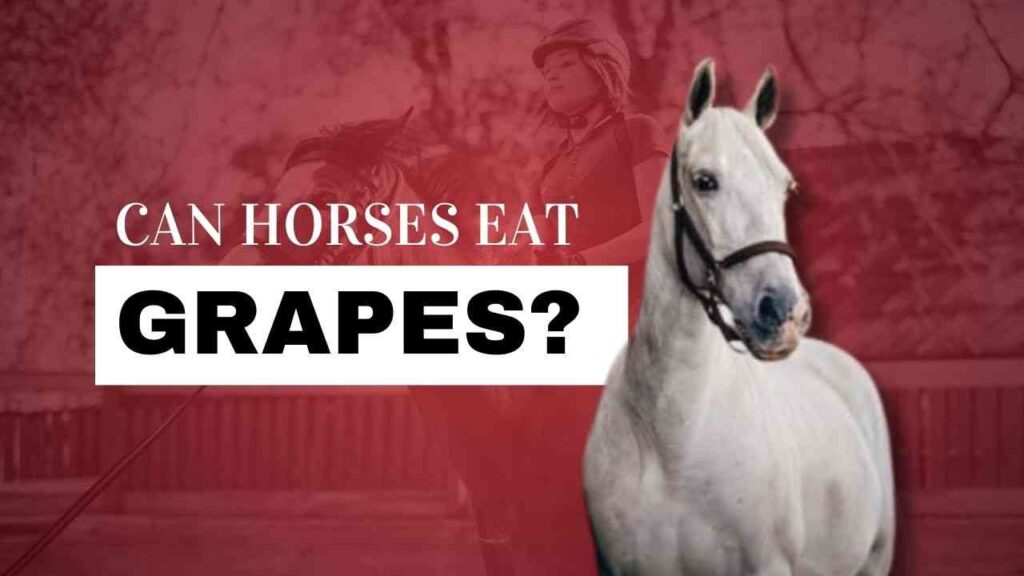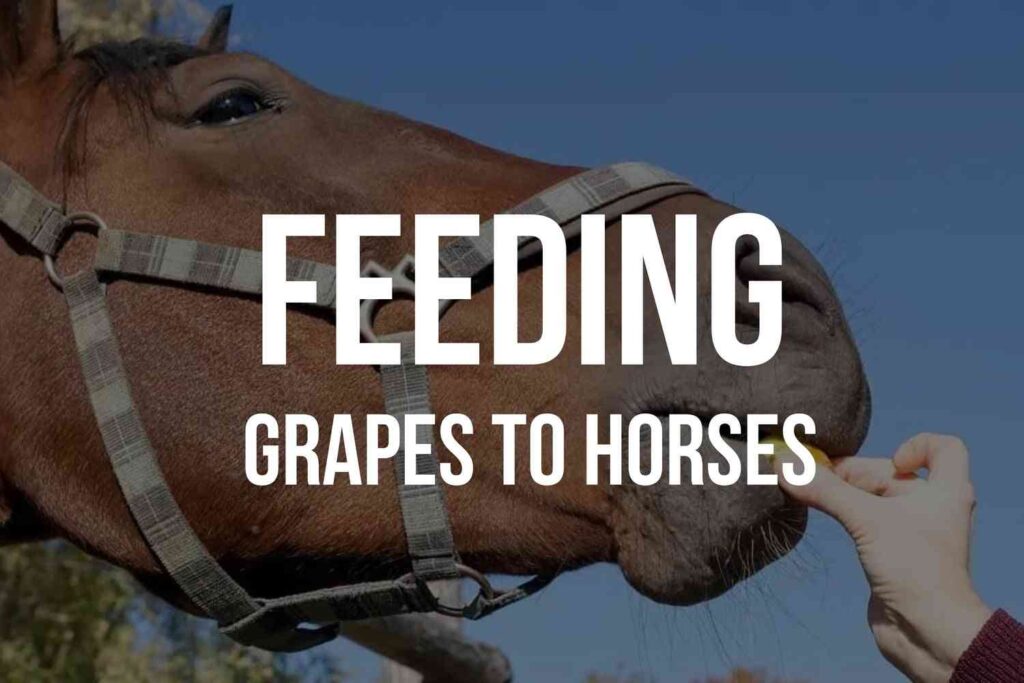Contents
Key Takeaways:
- Grape seeds may pose risks due to potential toxicity and digestive challenges.
- Horses thrive on a forage-based diet; new additions should be introduced cautiously.
- Safer alternatives, like carrots and apples (without seeds), are better snack options.
- Always consult a veterinarian before introducing new foods into your horse’s diet.
>> READ MORE:
- Can Horses Eat Grapes? – All Important Things You Should Know
- Unlock the Truth: Can Horses Safely Indulge in Raisins?
Understanding Horses and Their Dietary Needs
Horses are grazing animals with digestive systems designed to process fiber-rich forage like grass and hay. While treats like fruits and vegetables can be a delightful addition to their diet, these should only make up a small percentage of their total food intake.
Among popular treat options, grapes are sometimes fed to horses in moderation. However, the inclusion of grape seeds introduces potential concerns that horse owners must carefully consider. https://hearttohorses.com

Are Grape Seeds Safe for Horses?
Potential Risks of Grape Seeds
Grape seeds contain compounds such as:
- Tannins: Known to cause irritation to the digestive system in large amounts.
- Cyanogenic Glycosides: Precursors to cyanide, which can impair oxygen transport in the bloodstream if consumed in significant quantities.
Although definitive research on grape seeds’ toxicity in horses is limited, their similarity to other harmful seeds and pits suggests caution. The small size of grape seeds can also pose a challenge for horses’ dental structure and digestion, increasing the risk of complications.
Why Grape Seeds Should Be Avoided
- Toxicity Concerns: Even in small doses, cumulative exposure to harmful compounds can impact a horse’s health.
- Digestive Sensitivity: Horses have delicate gastrointestinal systems prone to irritation from non-forage foods.
- Lack of Research: The absence of concrete evidence on safety leans toward avoiding unnecessary risks.

Safer Treat Options for Horses
Instead of grape seeds, consider these safe and nutritious snacks:
- Carrot Sticks: A rich source of beta-carotene and a horse favorite.
- Apple Slices (Seed-Free): Sweet and refreshing with no associated risks.
- Commercial Horse Treats: Specially formulated to meet their nutritional needs.
These alternatives provide the variety horses enjoy without the dangers associated with grape seeds.
What to Do If a Horse Consumes Grape Seeds
Accidental ingestion of grape seeds might not always lead to immediate harm, but horse owners should remain vigilant.
- Monitor for Symptoms: Look for signs of colic, changes in behavior, or difficulty breathing.
- Contact a Veterinarian: Seek professional advice, even if the horse appears normal.
- Avoid Feeding Grapes with Seeds in the Future: Opt for seedless grapes if you choose to share this treat.
Conclusion: Prioritizing Safety in Horse Nutrition
While grapes can be an occasional treat for horses, grape seeds present unnecessary risks. Their potential toxicity, coupled with the challenges they pose to digestion, makes them unsuitable for equine consumption.
As caretakers of these majestic animals, prioritizing their health through informed dietary choices is essential. By sticking to proven safe treats and consulting veterinarians for guidance, horse owners can ensure their equine companions enjoy a healthy and happy life.
